Feeding your Cavalier the right diet is essential for their health and well-being; one diet option pet owners might consider is the raw food diet. This approach seeks to replicate the natural diet of dogs, which primarily consists of meat, bone, offal, and a small amount of plant ingredients.
Raw food is not suitable for all dogs, and if your Cavalier suffers from a sensitive stomach, a raw food diet may not be recommended. Cavaliers need a balanced diet, including the necessary vitamins and minerals, so it is essential to consult with a veterinarian or canine nutrition expert before making significant dietary changes.
Although traditionally, dogs have been fed processed commercial pet foods, the raw food diet has gained popularity in recent years due to the potential health benefits it can offer. Not knowing the first thing about raw food for dogs, I visited a local store to learn all about it.
Raw Food for Dogs: The Basics
After speaking to Daz, the owner, and operator of The Raw Store, he introduced me to the different types of raw food, what to do with it, and what benefits it can have for all dogs.
He didn’t pull any punches; although he promotes raw food for dogs, he said it isn’t suitable for all dogs. He would rather miss out on a sale to benefit the health of the animal in question.
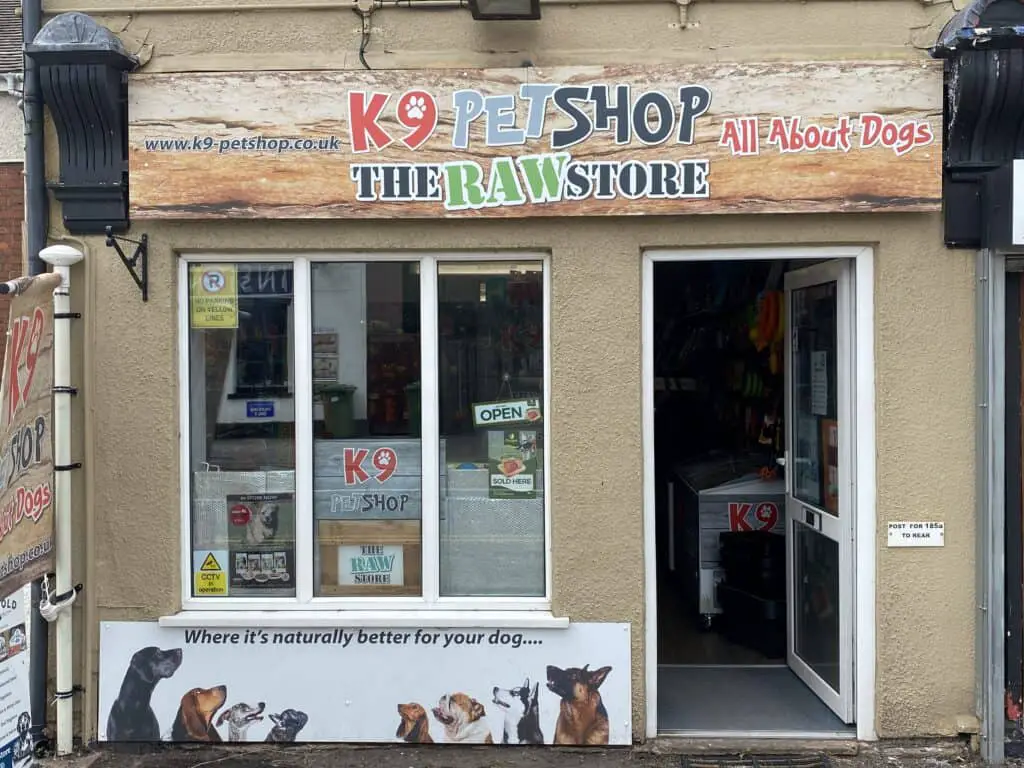
That being said, he did state that, for the vast majority, raw food for dogs is the better option.
I liked Daz immediately; you could tell he cared about his customers, both the two-legged and four-legged varieties.
Protein and Fat Content
Raw food diets focus on providing high-quality proteins and fats that are essential for their overall health. These diets typically involve feeding your Cavvy a combination of raw meat, offal, and bones.
The proteins and fats in raw diets are easily digestible and help to promote muscle growth, healthy skin, and coat, and support your pet’s immune system.
One of the customers in the store commented on how shiny her dogs’ coats were just six months after switching to a raw food diet.
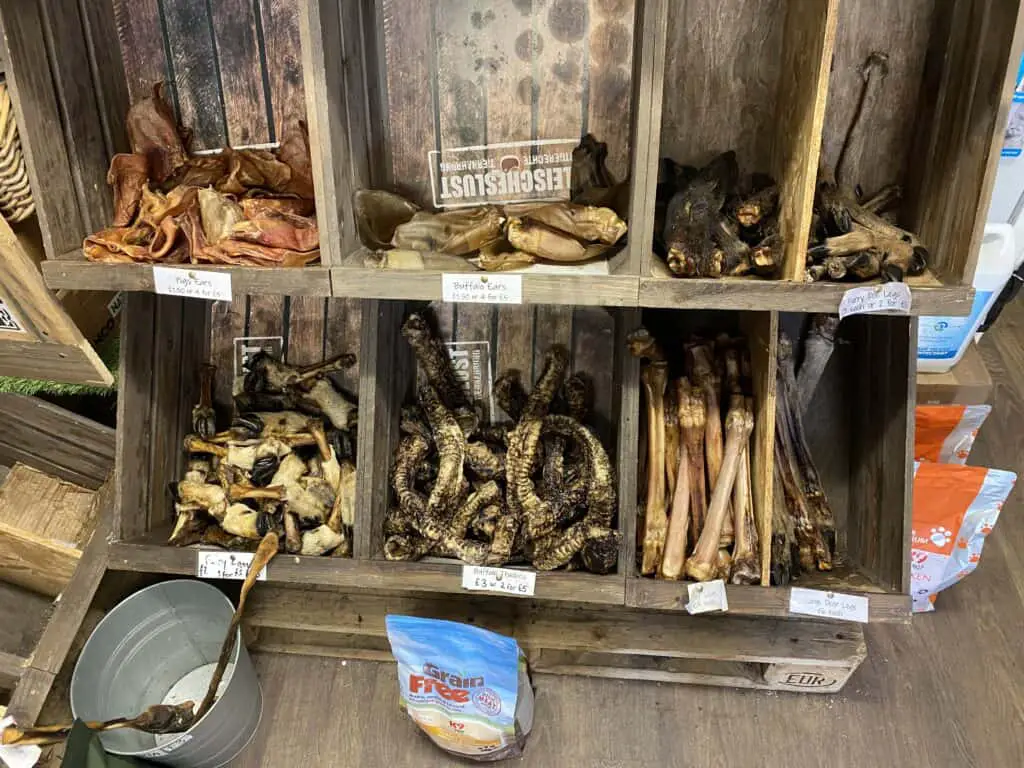
Vitamins, Minerals, and Carbohydrates
Aside from protein and fat, raw diets incorporate other essential nutrients, including vitamins, minerals, and small amounts of plant-based carbohydrates. These are usually sourced from vegetables and fruits, which provide the necessary antioxidants to help maintain your pet’s health.
The balanced raw food diet aims to offer your Cavalier a diverse range of nutrients that cater to its nutritional needs.
Benefits and Potential Risks
Some benefits of feeding raw food to your Cavalier King Charles Spaniel include:
- Improved digestion and absorption of nutrients
- Enhanced immune system and overall health
- Reduced likelihood of inflammation and other health conditions
- Fresher breathe and healthier teeth and gums
Daz also added (and I’m struggling with how to put this politely) his dogs ‘number twos’ are smaller, less frequent, and don’t smell. This may seem odd, but he informed me that it is due to more nutrients being absorbed into the body, so less waste.
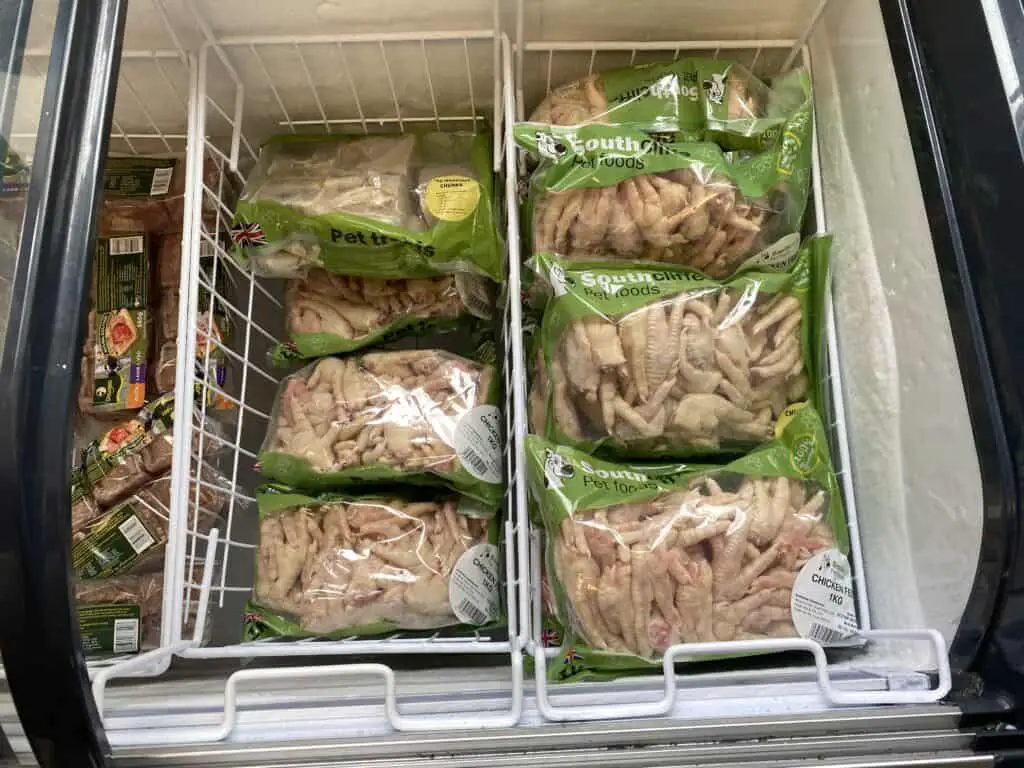
However, there are potential risks associated with raw diets that pet owners should be aware of:
- Risk of bacterial contamination from raw meats
- An incomplete or unbalanced diet could lead to nutritional deficiencies
- Choking hazards or injuries from bones
- Overfeeding and obesity-related health issues
Daz said he is registered with DEFRA (Department for Environment, Food & Rural Affairs), and many stores are not.
This is bad as you cannot guarantee quality products. So always ask, he insisted. You need to know what your dog is eating.
Raw Food Types
When considering a raw diet for your Cavalier, it is crucial to consult with your veterinarian to ensure your Cavvys nutritional needs are met, and any potential risks are addressed.
Remember, every dog is unique, and as such, their diet should be tailored to their requirements.
For example, our Cavalier, Lady, requires a strict low-fat diet due to health conditions, so she cannot digest raw food. It would be detrimental to her health, so we stick to the diet prescribed by our veterinarian.
Frozen Raw Diets
Frozen raw diets consist of raw, uncooked frozen ingredients to maintain freshness. They are available in various forms, such as patties, nuggets, or whole items, such as feet or ears.
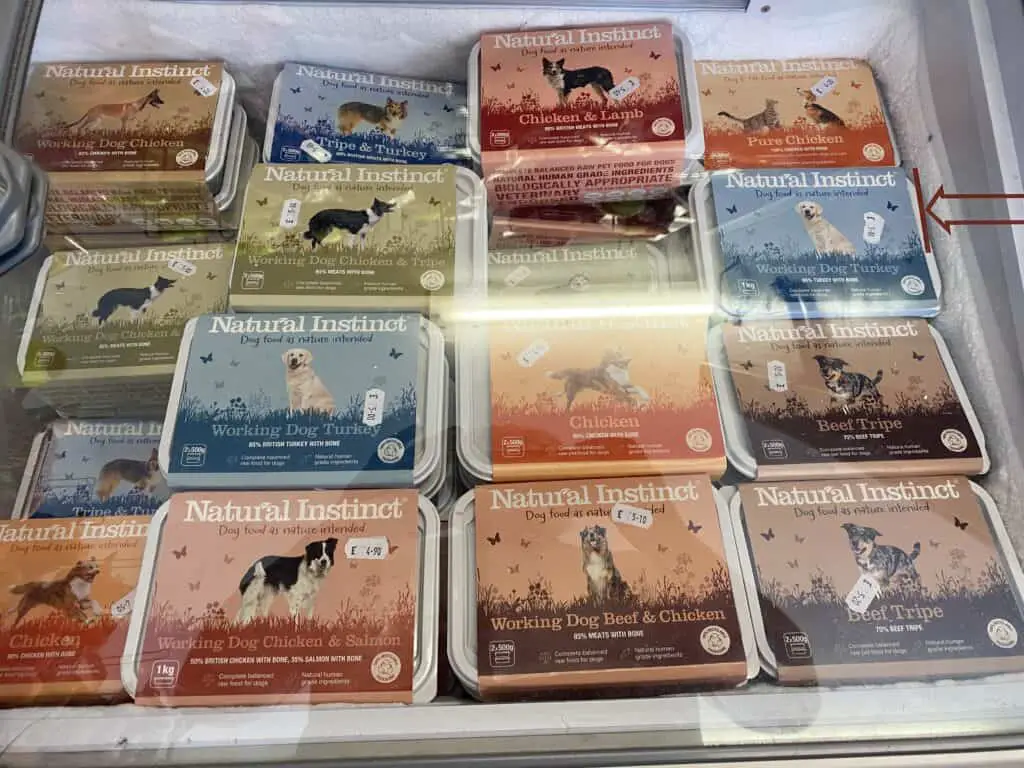
These diets typically combine muscle meat, organ meat, ground bone, and fruits or vegetables.
This was predominantly sold in The Raw Store, as it is easy to keep. Daz told me to treat it like frozen meat, defrost it in the fridge the day before, and serve it the next day.
Human-Grade Raw Diets
All food in The Raw Store is human-grade, meaning the food for sale is made entirely from ingredients deemed suitable for human consumption.
So these diets may offer an even higher quality of ingredients than traditional food options.
Important Considerations for a Raw Food Diet
Life Stage
When feeding a Cavalier King Charles Spaniel a raw food diet, it is essential to consider the dog’s life stage.
Puppies, adult dogs, and senior dogs have different nutritional requirements. Puppies need higher protein levels and specific nutrients to support their rapid growth and development.
Adult dogs require balanced nutrition to maintain their weight and overall health.
Senior dogs may need fewer calories and more nutrients to support joint health and proper digestion. Consult your veterinarian to determine the best raw food diet for your dog’s life stage.
Pregnancy
During pregnancy, a Cavalier King Charles Spaniel requires special nutritional considerations. Pregnant dogs need more calories, protein, and certain nutrients to support healthy fetal development and maintain the mother’s body condition.
A raw food diet can be adjusted to meet these needs by increasing the amount of high-quality meat, offal, and plant ingredients in each meal.
Again, it is crucial to consult with your veterinarian to ensure the raw food diet is suitable and properly meets the specific nutritional requirements of your pregnant Cavvy.
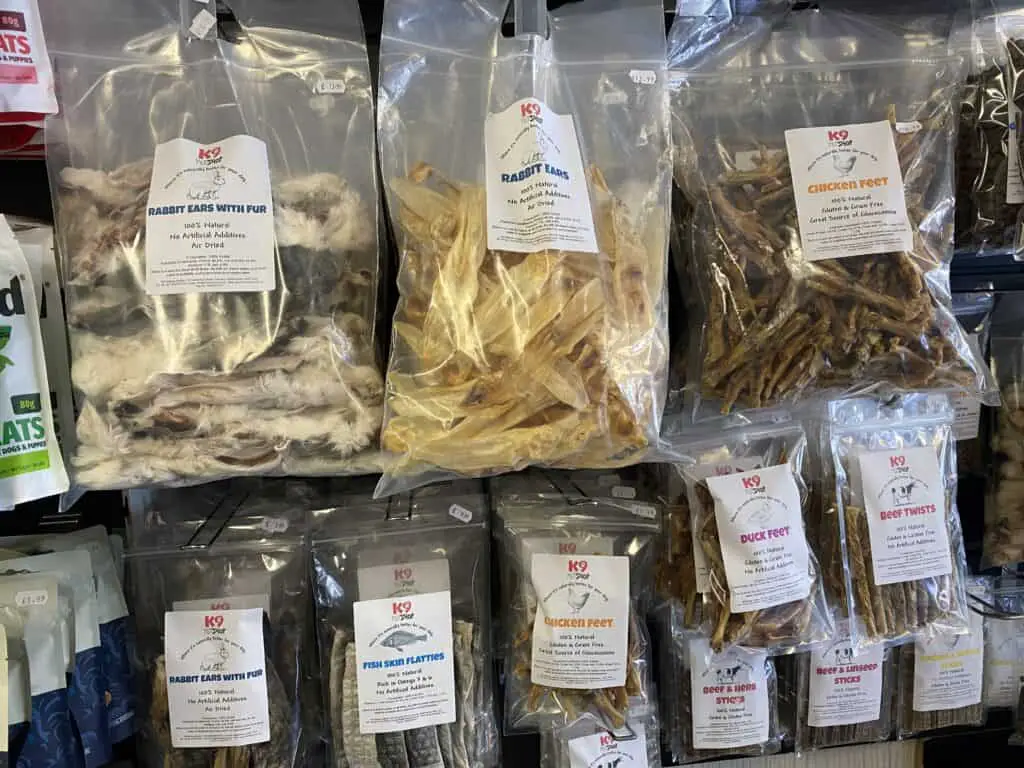
Existing Health Conditions
Remember to account for any existing health conditions.
Cavaliers are prone to certain health issues, such as heart problems, joint dysfunction, and allergies. Adjusting their diet to raw dog food could help manage and prevent these conditions.
On the flip side, as with our Cavvy, it may harm them. The health of your Cavalier is of utmost importance, so medical advice is always required.
Alternatives to Raw Food Diets
While some pet owners choose to feed their Cavalier a raw food diet, there are other options you can choose to provide a balanced and healthy lifestyle for your dog if they cannot tolerate raw food.
High-Quality Kibble
High-quality kibble can be an excellent choice for Cavalier King Charles Spaniels, as it is convenient, easy to store, and often contains the necessary nutrients for a balanced diet.
Look for kibble with higher protein and lower carbohydrate content to ensure your Cavvy receives proper nutrition. An option like Blue Buffalo Life Protection Adult is a good example.
When choosing a kibble, avoid those containing unhealthy ingredients such as artificial preservatives or fillers like corn and soy. Additionally, always ensure that the primary ingredient is a high-quality animal protein source.
Canned Dog Food
Canned dog food, or wet food, can also be a well-balanced choice for Cavalier King Charles Spaniels. This type of dog food typically has a higher moisture content which can benefit your dog’s urinary and kidney health.
Also, it often contains more protein and fewer carbohydrates than dry food since it has fewer filler ingredients.
When selecting canned dog food, look for those made with natural ingredients, and ensure that the main ingredient is a high-quality protein source.
There are also specialist canned foods available for certain dietary requirements. This is the food prescribed to our Cavvy by the veterinarian, as she is on a low-fat diet.
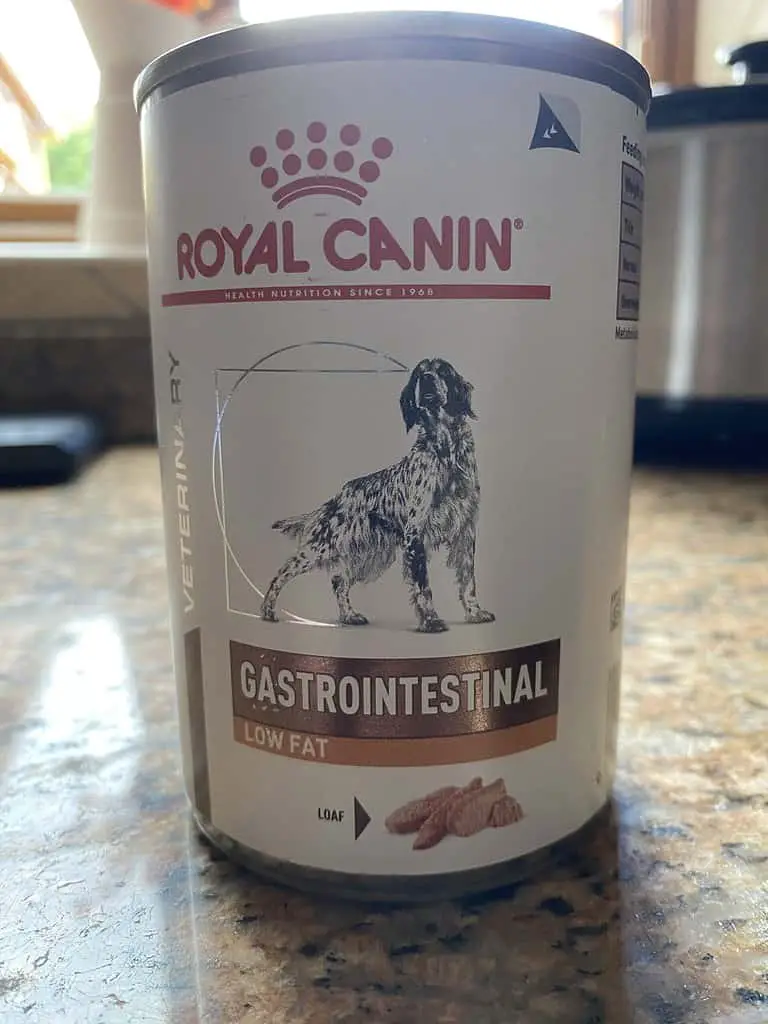
Things to Keep in Mind
Consulting Your Veterinarian
Before switching your Cavalier King Charles Spaniel to a raw food diet, it’s crucial to consult your veterinarian.
They can help determine if such a diet is appropriate for your dog, considering their age, weight, and existing health conditions.
Monitoring Your Dog’s Health
After switching your Cavalier to a raw food diet, it’s essential to keep a close watch on their overall health. Some possible indicators of health include:
- Energy level: Observe if your dog’s energy level increases or remains consistent after transitioning to raw food.
- Weight: Ensure your dog is not gaining excess weight or becoming too thin. Adjust calorie intake as needed.
- Stomach: Watch for any stomach sensitivities, diarrhea, or constipation.
- Dental: Raw diets can improve dental health, so check for changes in your dog’s teeth and gums.
- Itching: Itching can be a sign of allergies or other health issues related to diet, so monitor for any excessive scratching.
My Thoughts
If you need any assistance regarding raw food for dogs, I would encourage you to visit a local store as I did. It was enlightening as well as educational.
Always maintain a healthy calorie distribution with 90% from food and 10% from treats. As with humans, excess of anything is bad for your health. It’s all about balance.
.
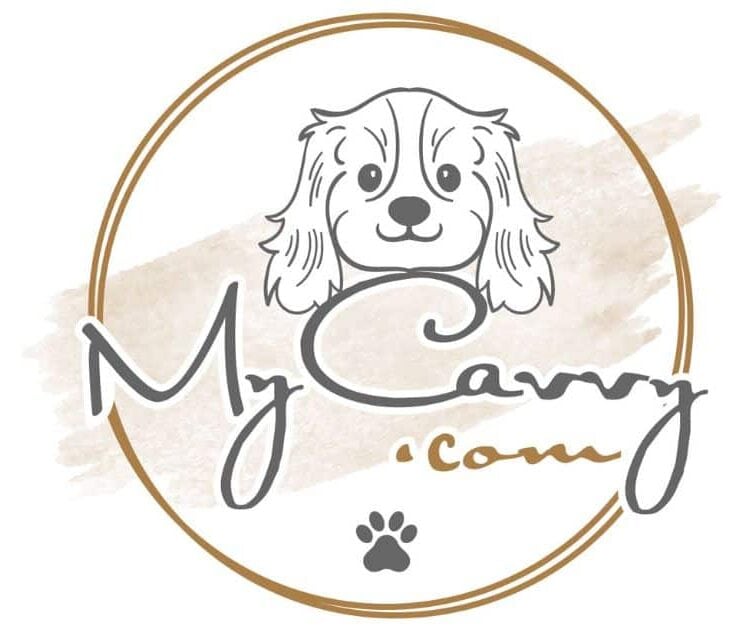
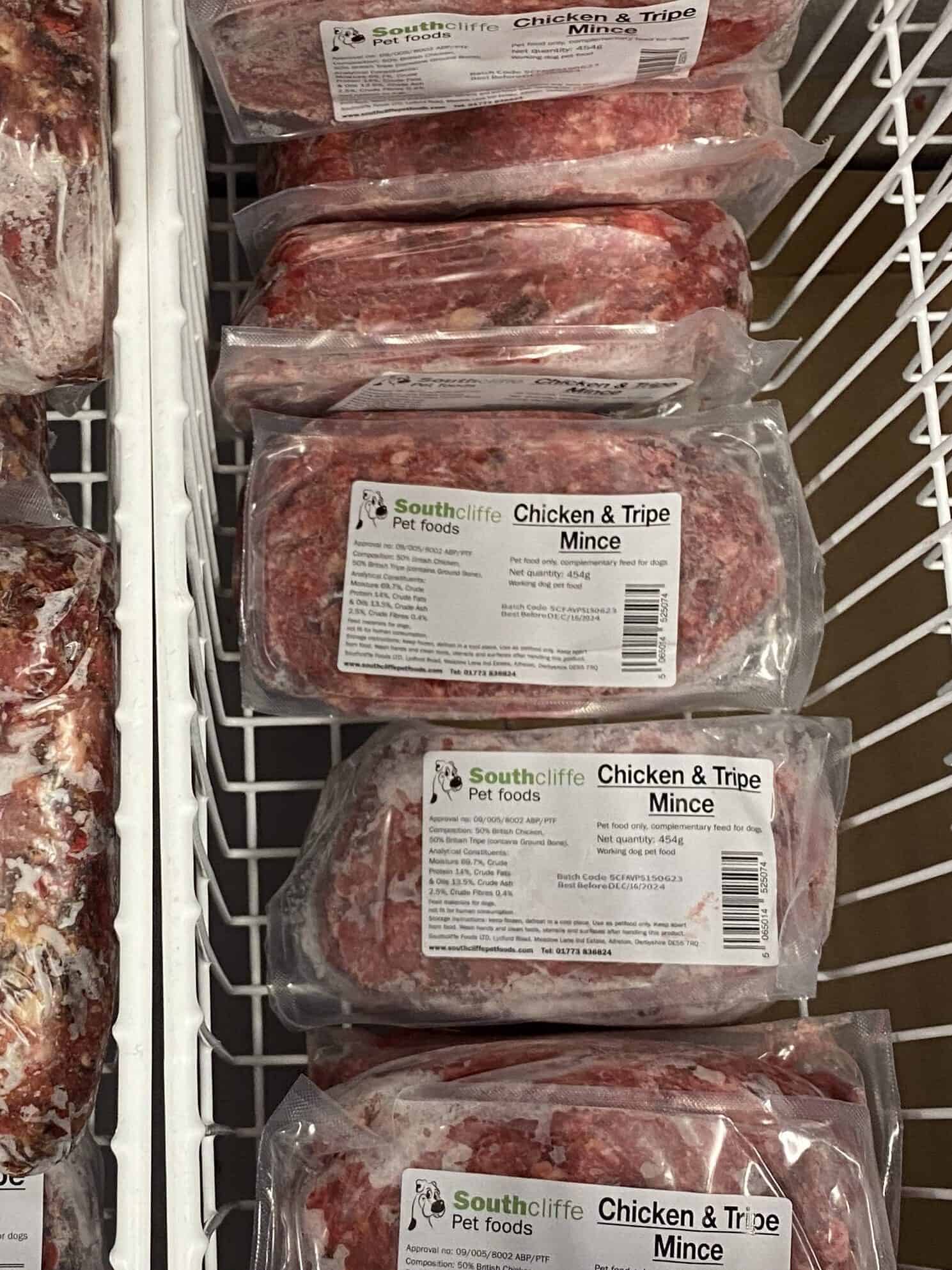
2 thoughts on “Raw Food for Dogs: Is this Trend Good for a Cavalier?”